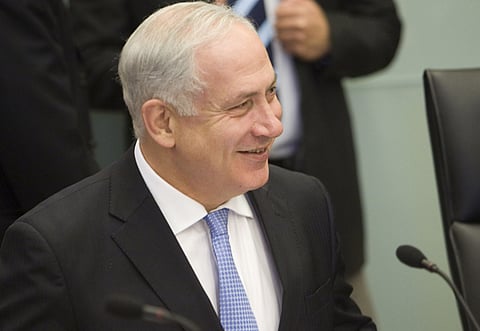Jerusalem plan would demolish Palestinian homes
Mayor agrees to request from Israel's prime minister to consult residents before breaking ground

Occupied Jerusalem: Occupied Jerusalem's mayor unveiled a plan on Tuesday to demolish dozens of Palestinian homes to make room for a tourist centre in one of the disputed city's most volatile neighbourhoods, drawing criticism from Palestinians and the United Nations.
Mayor Nir Barkat agreed to last-minute request from Israel's prime minister to consult Palestinian residents before breaking ground. That could delay the plan for an unknown period of time, but the move threatened to raise tensions in the holy city just as the Obama administration makes a new push to renew Mideast peace talks.
"There is no way the Palestinians can accept the demolishing of houses in [occupied] Jerusalem and the continuation of building settlements [colonies] for the Jewish settlers [colonisers], while the United States is trying to bring the parties together," Palestinian Cabinet minister Mohammad Ishtayeh told The Associated Press. "We fully and totally condemn all these Israeli measures."
At a news conference, Barkat presented his plan as a much needed upgrade of occupied Jerusalem's decaying Al Bustan neighbourhood, which Israeli officials have begun calling Gan Hamelech, or the King's Garden, linking it to the site where the biblical King David is said to have written his psalms.
The city wants to build shops, restaurants, art galleries and a large community centre replete with day care facilities and gyms. Barkat said the area's Palestinian residents, subject to decades of neglect, will benefit, and that most of those who would lose their homes would be eligible for alternative housing.
"The conditions in which these residents live are intolerable. The goal of the plan is to find solutions," Barkat said.
But few Israeli moves in occupied east Jerusalem are benign in Palestinian eyes. The Palestinians hope to make that part of the city _ captured by Israel in the 1967 Mideast war _ the capital of a future independent state. They see Barkat's plan as another way for Israel to cement its control there. Israel annexed east Jerusalem immediately after capturing it, but no other country recognised the move.
Mousa Oudeh, a 58-year-old Palestinian whose home is one of 88 slated for demolition, accused Barkat of fomenting "extremism and bloodshed."
"This is our land and home," he said, holding up a document he said was the title to the property. "Our house is a symbol of our dignity."
Such disputed over construction in occupied east Jerusalem have turned violent in the past.
Apparently fearing stiff criticism from the US, Israeli Prime Minister Benjamin Netanyahu called on Barkat to hold the plan up while he consults with the affected Palestinians. Barkat agreed.
Al Bustan, a section of a larger Jerusalem neighbourhood known as Silwan, is located across from the walls of the Old City, with its sacred shrines holy to Judaism, Christianity and Islam. The neighbourhood is home to some 50,000 Palestinians and around 70 Jewish families.
Just to the west of Al Bustan is a newly-constructed archaeological park called the City of David, run by Jewish colonisers.
Colonisers have illegally erected an apartment building elsewhere in Silwan - a tiny enclave amid a sea of Palestinians - and on Monday a security guard was shot and wounded there. On a recent morning, residents of the building showed reporters black marks caused by Molotov cocktails thrown at the front door, and described how a washing machine was dropped from an upper floor in the direction of colonisers.
Silwan has become a nucleus of tension between Palestinians fearful of eviction and Jews determined to ensure the holy city remains Israel's undivided capital. It's also become a flashpoint of potential friction between Israel's right-leaning government led by Prime Minister Benjamin Netanyahu and an international community seeking to end the Israeli-Palestinian conflict.
"We're trying to reduce tensions at the current time, not exacerbate them," said Richard Miron, spokesman for the UN's Mideast envoy. "Whatever the intentions behind such a project, Israel needs to understand that demolishing Palestinian homes in [occupied] east Jerusalem demolishes confidence among Palestinians and frankly, also internationally."
Earlier on Tuesday, Netanyahu drew Palestinian fire for telling a parliamentary committee that even after a peace treaty, Israel would have to retain the Jordan River Valley at the east edge of the West Bank for security reasons.
Netanyahu told the parliament's Foreign Affairs and Defence Committee that keeping the Jordan Valley was an "essential condition to ensure security and ensure that a peace deal holds," according to a meeting participant who spoke on condition of anonymity because the meeting was closed.
Palestinian negotiator Saeb Erekat rejected Netanyahu's comments. "He knows that this is a nonstarter for any peace agreement," Erekat said.
Sign up for the Daily Briefing
Get the latest news and updates straight to your inbox


